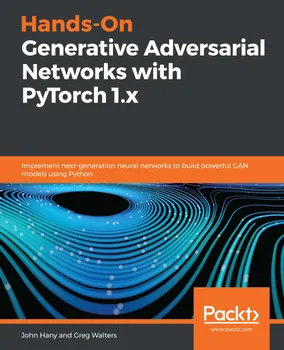Apply deep learning techniques and neural network methodologies to build, train, and optimize generative network models
Key Features
Implement GAN architectures to generate images, text, audio, 3D models, and more
Understand how GANs work and become an active contributor in the open source community
Learn how to generate photo-realistic images based on text descriptions
Book Description
With continuously evolving research and development, Generative Adversarial Networks (GANs) are the next big thing in the field of deep learning. This book highlights the key improvements in GANs over generative models and guides in making the best out of GANs with the help of hands-on examples.
This book starts by taking you through the core concepts necessary to understand how each component of a GAN model works. You'll build your first GAN model to understand how generator and discriminator networks function. As you advance, you'll delve into a range of examples and datasets to build a variety of GAN networks using PyTorch functionalities and services, and become well-versed with architectures, training strategies, and evaluation methods for image generation, translation, and restoration. You'll even learn how to apply GAN models to solve problems in areas such as computer vision, multimedia, 3D models, and natural language processing (NLP). The book covers how to overcome the challenges faced while building generative models from scratch. Finally, you'll also discover how to train your GAN models to generate adversarial examples to attack other CNN and GAN models.
By the end of this book, you will have learned how to build, train, and optimize next-generation GAN models and use them to solve a variety of real-world problems.
What you will learn
Implement PyTorch's latest features to ensure efficient model designing
Get to grips with the working mechanisms of GAN models
Perform style transfer between unpaired image collections with CycleGAN
Build and train 3D-GANs to generate a point cloud of 3D objects
Create a range of GAN models to perform various image synthesis operations
Use SEGAN to suppress noise and improve the quality of speech audio
Who this book is for
This GAN book is for machine learning practitioners and deep learning researchers looking to get hands-on guidance in implementing GAN models using PyTorch. You'll become familiar with state-of-the-art GAN architectures with the help of real-world examples. Working knowledge of Python programming language is necessary to grasp the concepts covered in this book.
